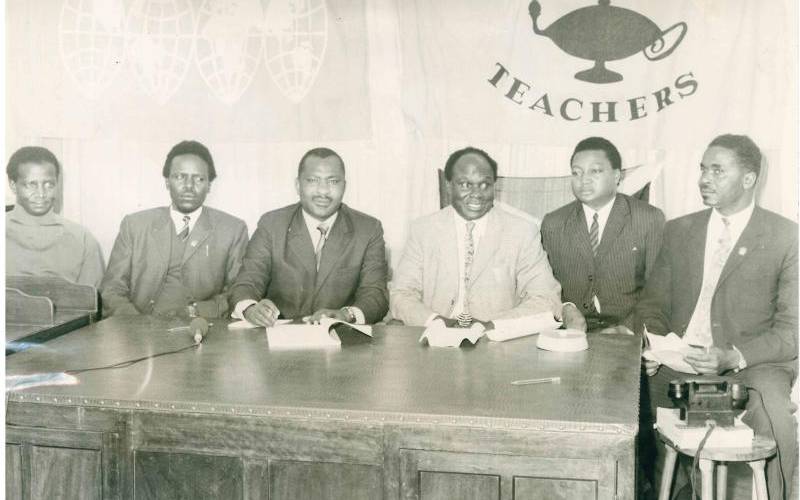×
The Standard e-Paper
Fearless, Trusted News

KNUT Sec-Gen Ambrose Andongo (Centre) addressing a conference during 21st World confederation of the organisation of the teaching profession assembly in Nairobi in August 1972.[File,Standard]
From a garage in Ruiru to being thrown out into the streets; this is the story of Knut, one of Kenya’s biggest and most enduring trade unions. It is also the story of months of penury and cold nights rewarded with police cells and State terror.







